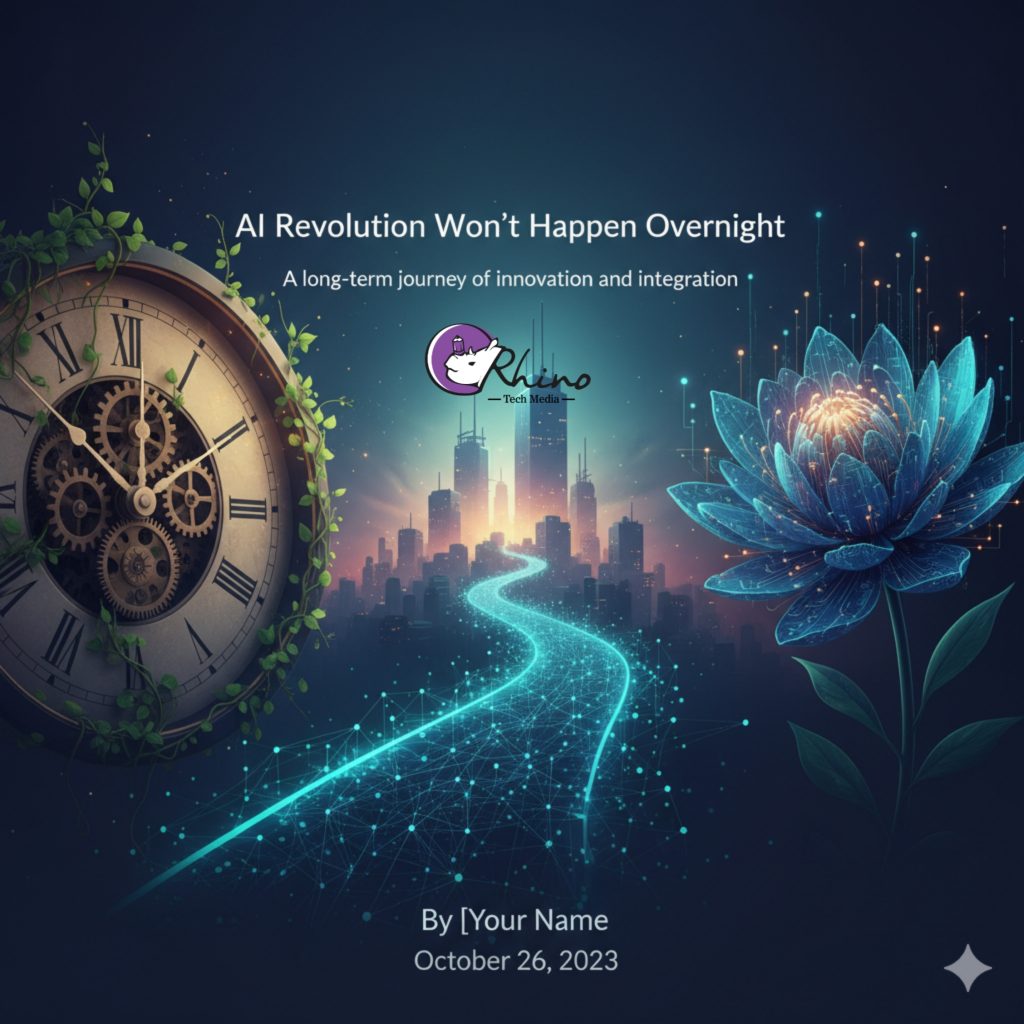Introduction
The global discourse around artificial intelligence (AI) often swings between two extremes: unbridled optimism and existential fear. Some envision a world transformed almost instantly by sentient machines and autonomous systems, while others warn of job losses and societal collapse. However, the truth lies somewhere in between. The AI revolution is indeed underway, but it is not a sudden event—it is a gradual process unfolding over years, shaped by technological, economic, ethical, and cultural factors. Understanding this slower evolution is essential for setting realistic expectations and crafting responsible strategies for the future.
Technological Evolution, Not Revolution
AI’s development follows a trajectory of incremental improvement rather than abrupt transformation. Despite rapid advancements in machine learning, natural language processing, and generative models, these technologies still depend on vast datasets, human oversight, and computational power. Each leap forward—such as the emergence of large language models or autonomous vehicles—builds upon decades of prior research and experimentation.
Moreover, AI systems remain limited by their training data and lack true general intelligence. They excel in narrow domains but falter outside predefined contexts. This means the revolutionary potential of AI, such as creating machines that understand, reason, and adapt like humans, is still in the distant future. The evolution of AI mirrors that of other transformative technologies like electricity or the internet—it took decades for those innovations to become integral parts of daily life.
Economic and Infrastructure Constraints
Even as AI capabilities expand, widespread adoption faces practical barriers. Implementing AI at scale requires significant investment in infrastructure—data centers, specialized hardware, and robust cybersecurity systems. Many industries, particularly small and medium-sized enterprises, lack the resources to integrate AI effectively. Additionally, the workforce must undergo reskilling to align with AI-driven workflows, which takes time and institutional support.
Economic inequality between nations also influences the speed of the AI revolution. Wealthier countries with established technology ecosystems can accelerate adoption, while developing regions may lag behind due to resource constraints. Thus, the diffusion of AI across the global economy will be uneven and gradual, reinforcing the idea that transformation won’t occur overnight.
Ethical, Legal, and Social Deliberations
Beyond technology and economics, ethical and regulatory considerations slow the pace of AI deployment—and rightly so. Questions about data privacy, algorithmic bias, intellectual property, and accountability require careful deliberation. Governments and organizations are still developing frameworks to ensure that AI serves humanity without undermining human rights or social trust.
Public perception also plays a crucial role. Many people remain skeptical of AI’s influence on employment, creativity, and decision-making. Cultural adaptation—accepting AI as a partner rather than a threat—will evolve through dialogue, education, and transparent governance. These societal processes cannot be rushed.
The Gradual Integration of AI into Daily Life
The signs of the AI revolution are already visible in everyday experiences: recommendation algorithms shaping entertainment choices, chatbots handling customer service, and AI-assisted tools enhancing healthcare diagnostics. Yet these applications often operate behind the scenes, seamlessly integrating into existing systems rather than replacing them outright.
In the near term, AI’s impact will be evolutionary—augmenting human capabilities, improving efficiency, and reshaping industries one process at a time. Over time, as trust and understanding deepen, these cumulative shifts may indeed amount to a revolution. But it will be one marked by gradual adaptation rather than sudden upheaval.
Conclusion
The AI revolution is best understood not as a single moment of transformation but as a continuum of progress. While the pace of innovation feels fast, the real-world integration of AI into society is inherently slow and complex. Technological breakthroughs must align with infrastructure readiness, ethical guardrails, and cultural acceptance.
In this light, the phrase “AI Revolution Won’t Happen Overnight” is not a statement of pessimism but of wisdom. True revolutions—those that redefine humanity’s relationship with technology—require patience, reflection, and collaboration. AI will change the world, but it will do so step by step, not in a single, dramatic leap.

